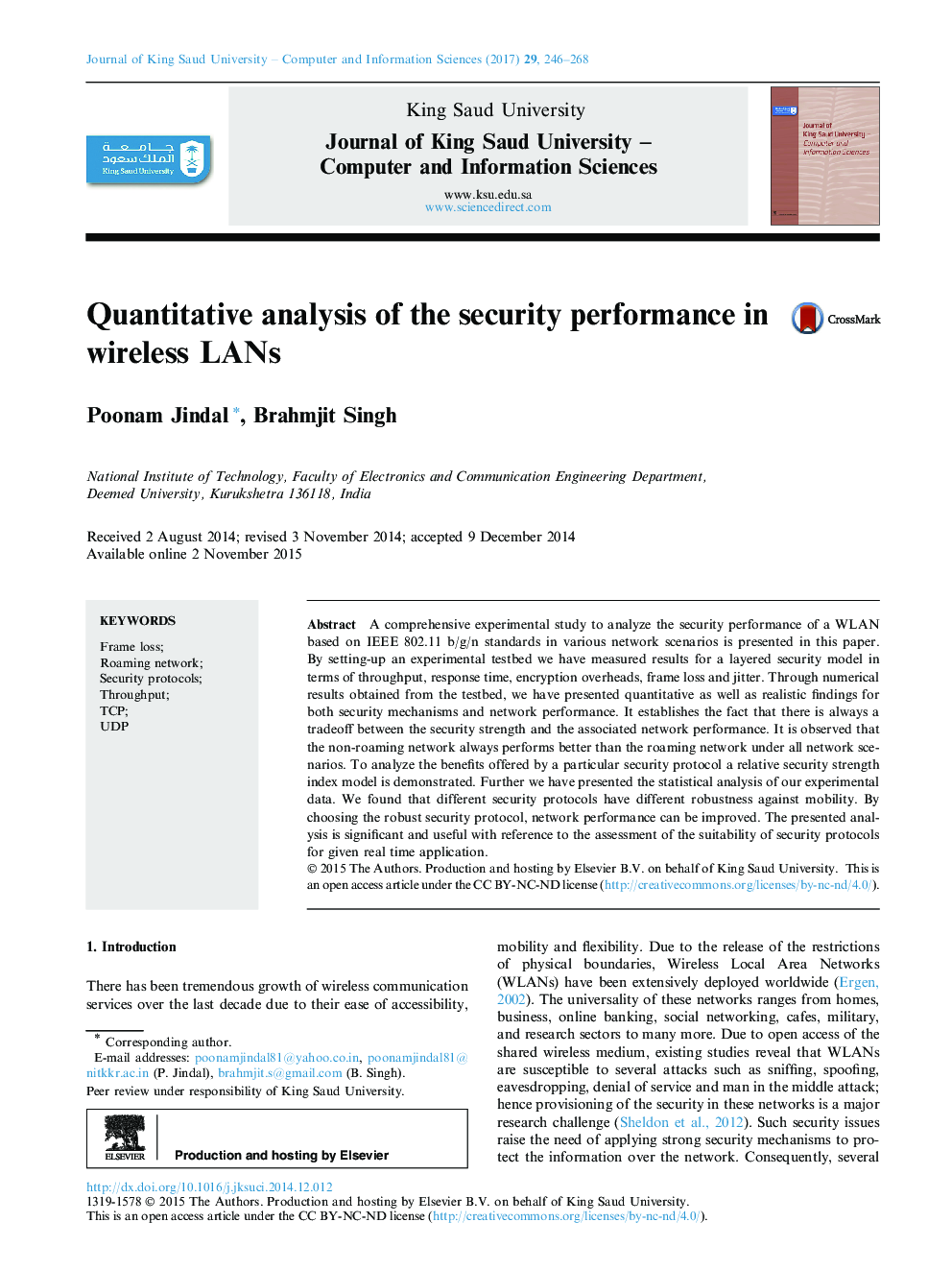| Article ID | Journal | Published Year | Pages | File Type |
|---|---|---|---|---|
| 4960349 | Journal of King Saud University - Computer and Information Sciences | 2017 | 23 Pages |
A comprehensive experimental study to analyze the security performance of a WLAN based on IEEE 802.11 b/g/n standards in various network scenarios is presented in this paper. By setting-up an experimental testbed we have measured results for a layered security model in terms of throughput, response time, encryption overheads, frame loss and jitter. Through numerical results obtained from the testbed, we have presented quantitative as well as realistic findings for both security mechanisms and network performance. It establishes the fact that there is always a tradeoff between the security strength and the associated network performance. It is observed that the non-roaming network always performs better than the roaming network under all network scenarios. To analyze the benefits offered by a particular security protocol a relative security strength index model is demonstrated. Further we have presented the statistical analysis of our experimental data. We found that different security protocols have different robustness against mobility. By choosing the robust security protocol, network performance can be improved. The presented analysis is significant and useful with reference to the assessment of the suitability of security protocols for given real time application.
